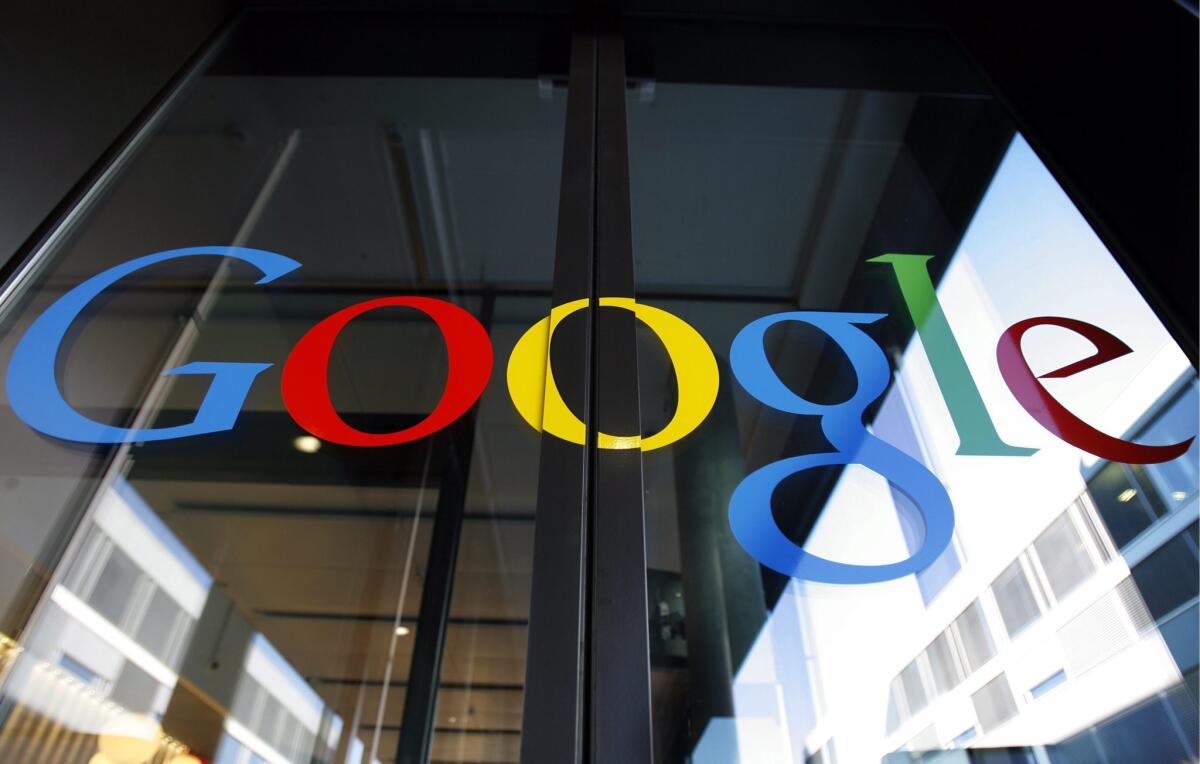Google claims quantum computing breakthrough

SAN FRANCISCO — Google announced it has achieved a breakthrough in quantum computing research, saying an experimental quantum processor has completed a calculation in just a few minutes that would take a traditional supercomputer thousands of years.
The findings, published Wednesday in the scientific journal Nature, show that “quantum speedup is achievable in a real-world system and is not precluded by any hidden physical laws,” the researchers wrote.
Quantum computing is a nascent and somewhat bewildering technology for vastly sped-up information processing. Quantum computers are still a long way from having a practical application but might one day revolutionize tasks that would take years for conventional computers to complete, such as hunting for new drugs and optimizing city and transportation planning.
The technique relies on quantum bits, or qubits, which can register data values of zero and one — the language of modern computing — simultaneously. Alphabet Inc.’s Google, Microsoft Corp., IBM Corp. and Intel Corp. are among the tech giants avidly pursuing the technology.
“Quantum things can be in multiple places at the same time,” said Chris Monroe, a University of Maryland physicist who is also the founder of quantum start-up IonQ. “The rules are very simple; they’re just confounding.”
Google’s findings, however, are already facing resistance from other industry researchers. A version of Google’s paper leaked online last month, and researchers caught a glimpse before it was taken down.
IBM quickly took issue with Google’s claim that it had achieved “quantum supremacy,” a term that refers to a point at which a quantum computer can perform a calculation that a traditional computer can’t complete within its lifetime. Google’s leaked paper showed that its quantum processor, Sycamore, finished a calculation in three minutes and 20 seconds — and that it would take the world’s fastest supercomputer 10,000 years to do the same thing.
Google’s calculation is a random sampling problem similar to a dice roll or gambling machine to find outputs from a huge set of combinations of different numbers.
But IBM researchers said Google underestimated the conventional supercomputer, called Summit, which can perform about 200 million billion operations per second. With all that processing power, they say, Summit could do the same calculation in 2.5 days.
Summit was developed by IBM and is located at the Oak Ridge National Laboratory in Tennessee.
Google dismissed IBM’s claims, asserting in a statement Wednesday that it performed its tests on an “actual supercomputer” and is now on a ”totally different trajectory” from classical computers. The company said Sycamore demonstrates that it is now “performing on real hardware a computation that’s prohibitively hard for even the world’s fastest supercomputer,” with more growth to come.
Whether Google has achieved ”quantum supremacy” may matter to competitors, but the semantics could be less important for the field of quantum research. What it does seem to indicate is that the field is maturing.
The work by the Google team “is truly a remarkable achievement and a milestone for quantum computing,” William Oliver of MIT wrote in a commentary published Wednesday in Nature. “However, much work is needed before quantum computers become a practical reality.”
Oliver likened the milestone to the Wright brothers’ historic flight at Kitty Hawk, N.C.
“Their aeroplane, the Wright Flyer, wasn’t the first airborne vehicle to fly, and it didn’t solve any pressing transport problem,” he wrote. “Instead, the event is remembered for having shown a new operational regime — the self-propelled flight of an aircraft that was heavier than air. It is what the event represented, rather than what it practically accomplished, that was paramount.”
The calculation employed by Google has little practical use other than to test how well the processor works, according to John Preskill, the Caltech professor who coined the term “quantum supremacy.”
Monroe echoed that sentiment.
“The more interesting milestone will be a useful application,” he said.
The promise of such future applications in commerce and national security has attracted interest from governments, including the United States and China, that are increasingly investing in the expensive basic research needed to make quantum computers useful.
One feared outcome of quantum computing is a computer powerful enough to break today’s best cryptography — though experts say it’s probably still decades away.
President Trump last year signed into law a congressional agreement to spend $1.2 billion over five years for quantum research across the federal government.
Google’s research was centered at a UC Santa Barbara laboratory but relied in part on a Department of Energy supercomputer and experts at NASA to verify the work.
Alphabet shares climbed 1.3% on Wednesday.




